Battery News
-
Battery ‘Dream Technology’ a Step Closer to Reality with New Discovery
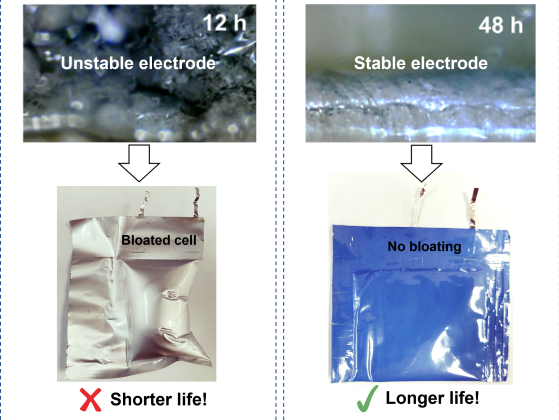
A sodium-sulfur battery created by engineers at The University of Texas at Austin solves one of the biggest hurdles that has held back the technology as a commercially viable alternative to the ubiquitous lithium-ion batteries that power everything from smartphones to electric vehicles.
-
Startups with Texas Engineering Roots Raise New Funding
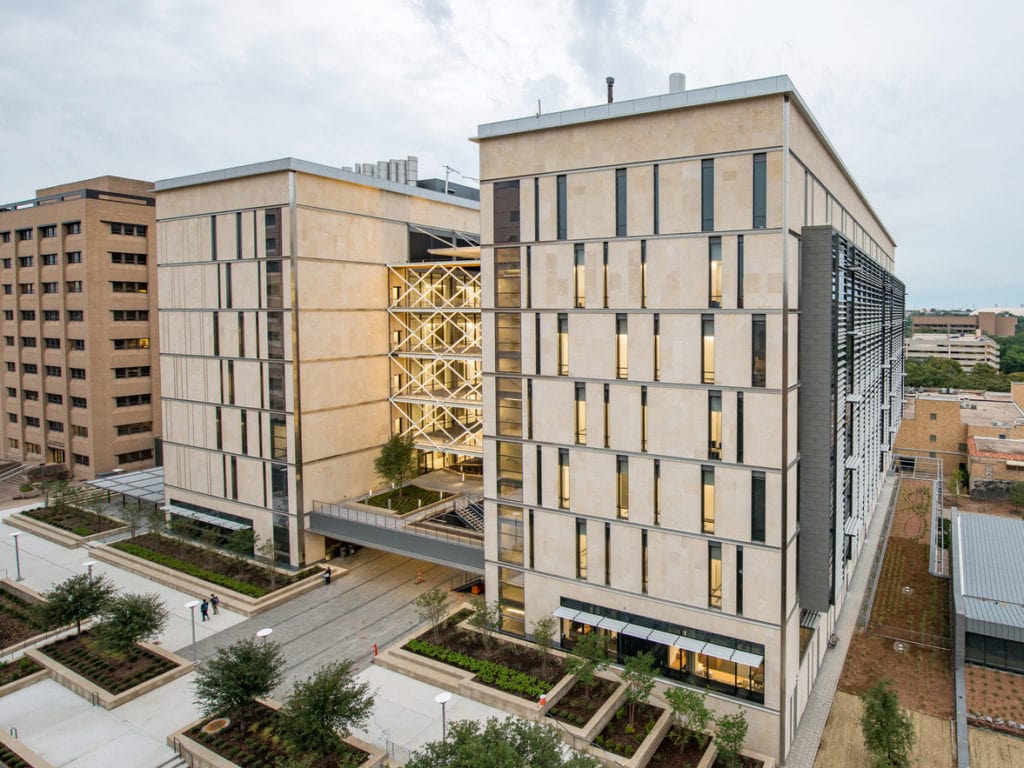
Several startups powered by technology created in labs at the Cockrell School of Engineering have raised fresh rounds of funding to continue their growth. The rounds for EnergyX, Harmonic Bionics and Symmetry Systems are the latest examples of startups with ties to Texas Engineering gaining momentum. The deals come on the heels of an alliance between hydrogen startup Celadyne and energy giant Shell.
-
Texas Engineer Teams Up with MIT for Battery Breakthrough
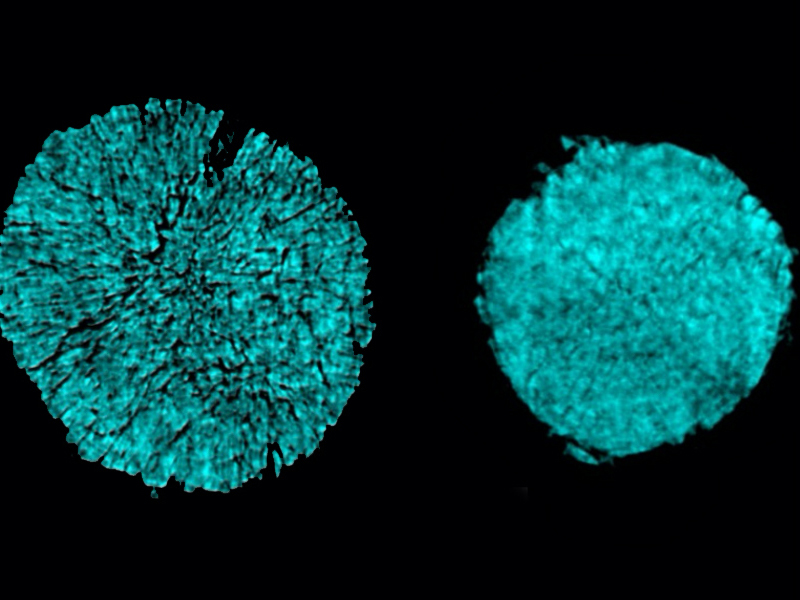
Lithium-ion batteries have made possible the lightweight electronic devices whose portability we now take for granted, as well as the rapid expansion of electric vehicle production. But researchers around the world are continuing to push limits to achieve ever-greater energy densities — the amount of energy that can be stored in a given mass of material — in order to improve the performance of existing devices and potentially enable new applications such as long-range drones and robots.
-
Making Lithium-Ion Battery Alternatives More Viable
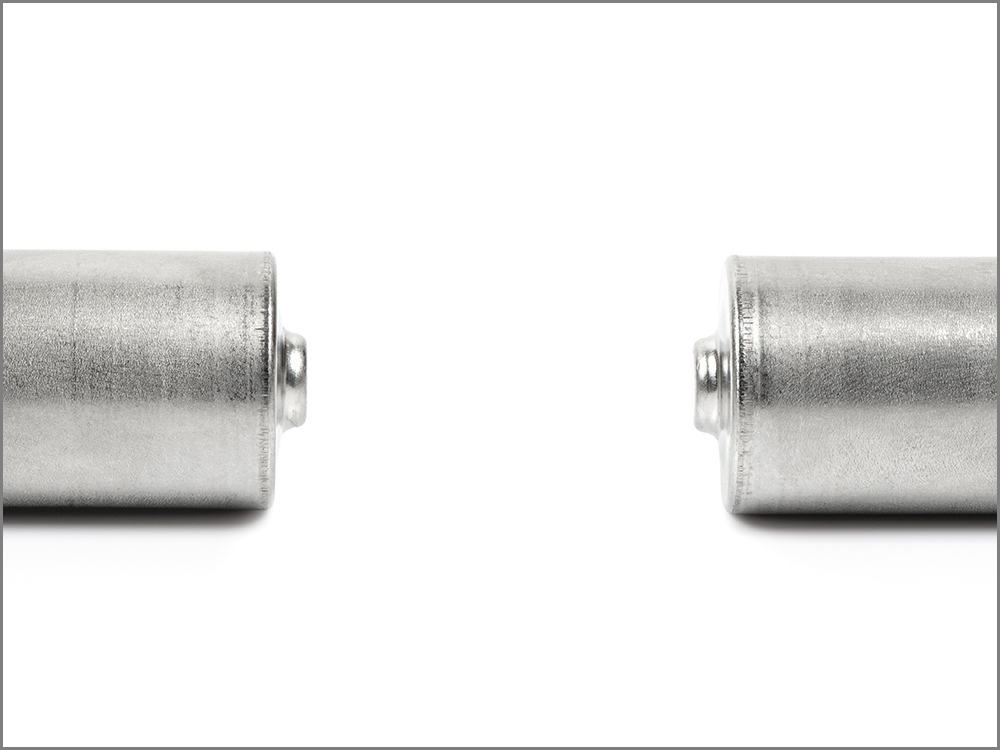
Lithium-ion batteries power devices that billions of people use every day — from electric cars to smartphones and laptops. The rising demand for these batteries created a need for alternative technologies with potentially lower material costs. A promising class of batteries based on sodium and potassium ions offer new options, especially for uses that don’t require maximum energy and power. But safety and longevity issues have held back their widespread commercial adoption.
-
Decades-Old Mystery of Lithium-Ion Battery Storage Solved
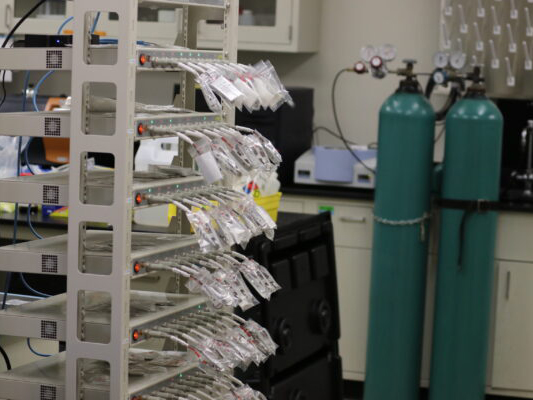
For years, researchers have aimed to learn more about a group of metal oxides that show promise as key materials for the next generation of lithium-ion batteries because of their mysterious ability to store significantly more energy than should be possible. An international research team, co-led by The University of Texas at Austin, has cracked the code of this scientific anomaly, knocking down a barrier to building ultra-fast battery energy storage systems.
-
A Widely Available Organic Material Could Give Batteries a Boost for Storing Renewable Energy
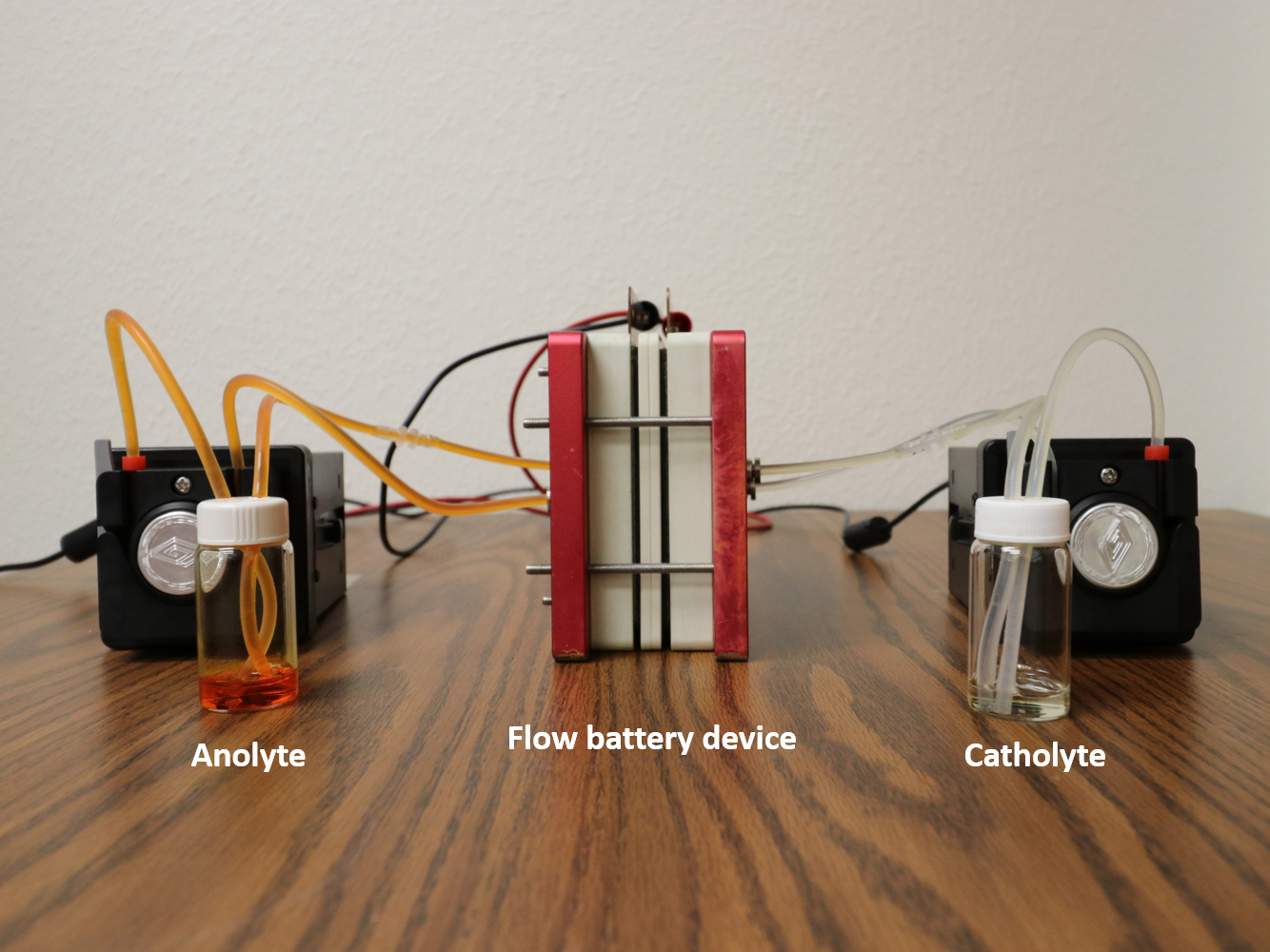
An abundant, organic material found in industrial dyes could be the key to advancing a type of battery with promise for storing and deploying large quantities of renewable energy. New research from The University of Texas at Austin’s Cockrell School of Engineering introduces new materials using azobenzene to open the door for “high-capacity, long-life non-aqueous flow batteries.”
-
New Cobalt-Free Lithium-Ion Battery Reduces Costs Without Sacrificing Performance
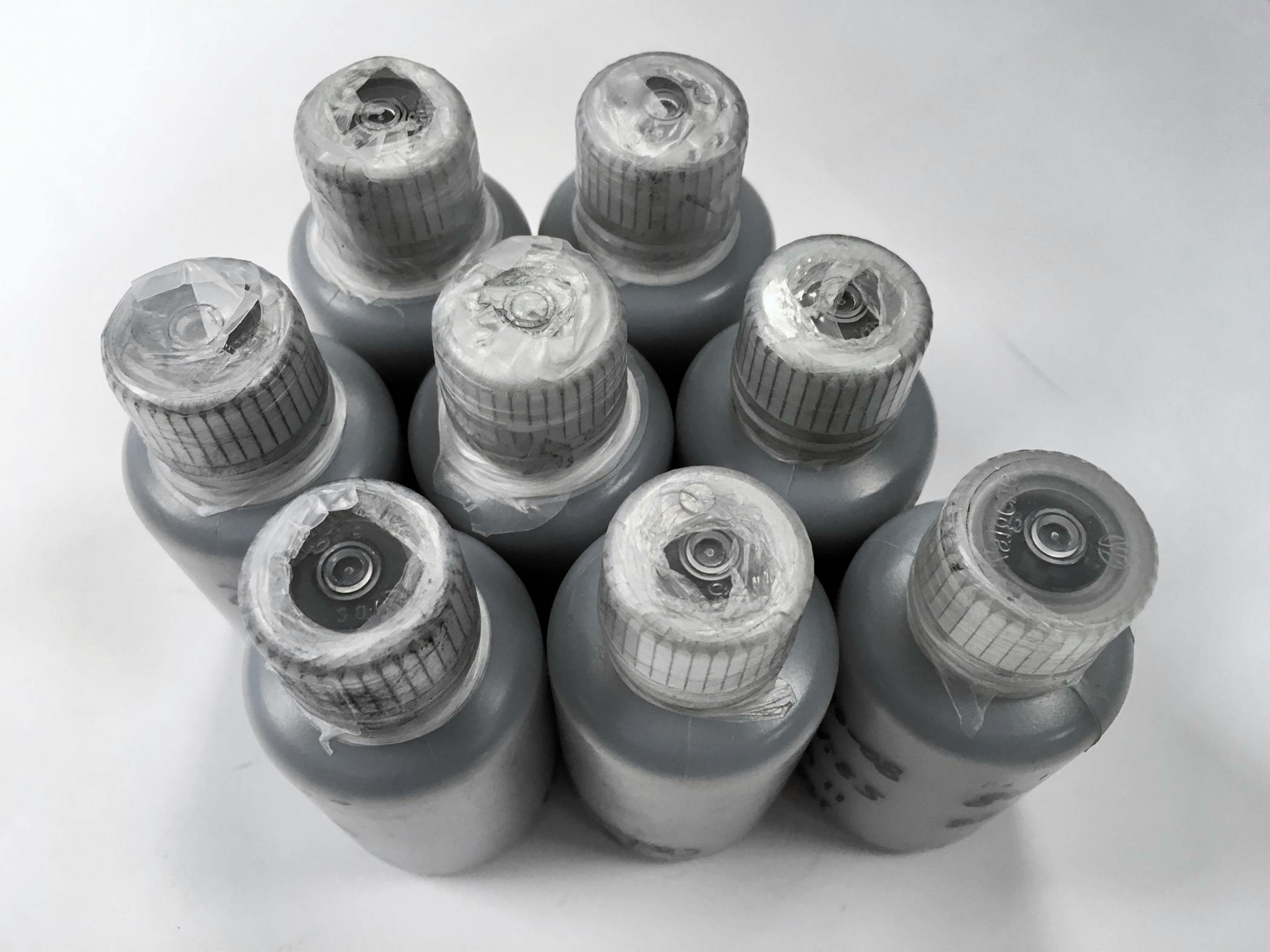
For decades, researchers have looked for ways to eliminate cobalt from the high-energy batteries that power electronic devices, due to its high cost and the human rights ramifications of its mining. But past attempts haven’t lived up to the performance standards of batteries with cobalt.
-
New Room-Temperature Liquid-Metal Battery Could Be the Path to Powering the Future
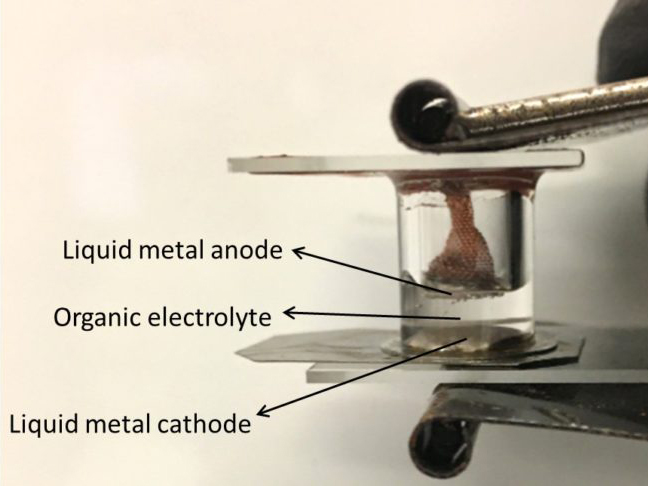
Researchers in the Cockrell School of Engineering at The University of Texas at Austin have built a new type of battery that combines the many benefits of existing options while eliminating their key shortcomings and saving energy. Most batteries are composed of either solid-state electrodes, such as lithium-ion batteries for portable electronics, or liquid-state electrodes, including flow batteries for smart grids. The UT researchers have created what they call a “room-temperature all-liquid-metal battery,” which includes the best of both worlds of liquid- and solid-state batteries.
-
New 5G Switches Mean Battery Life Improvements, Higher Bandwidth and Speeds
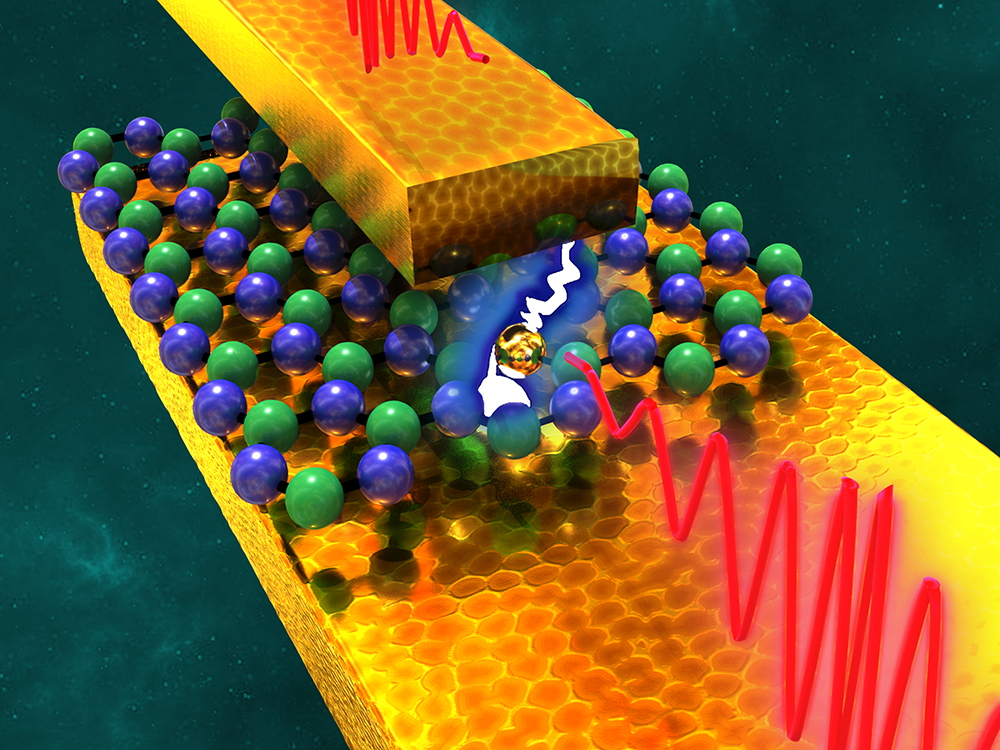
The 5G revolution has begun, and the first lines of phones that can access the next generation of wireless speeds have already hit the shelves. Researchers at The University of Texas at Austin and the University of Lille in France have built a new component that will more efficiently allow access to the highest 5G frequencies in a way that increases devices’ battery life and speeds up how quickly we can do things like stream high-definition media.
-
Next-Generation Batteries Take Major Step Toward Commercial Viability
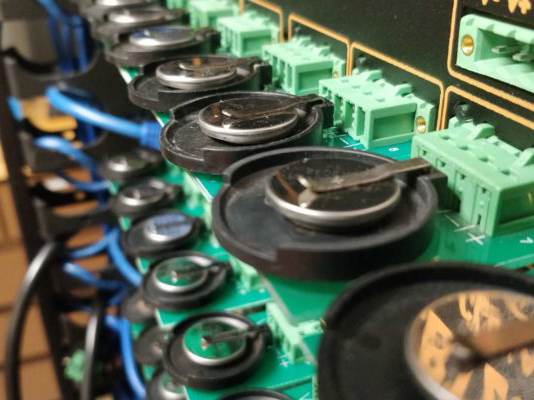
Lithium-sulfur batteries have been hailed as the next big step in battery technology, promising significantly longer use for everything from cellphones to electric vehicles on a single charge, while being more environmentally sustainable to produce than current lithium-ion batteries. However, these batteries don’t last as long as their lithium-ion counterparts, degrading over time.
-
Nobel Prize in Chemistry Goes to John Goodenough of The University of Texas at Austin
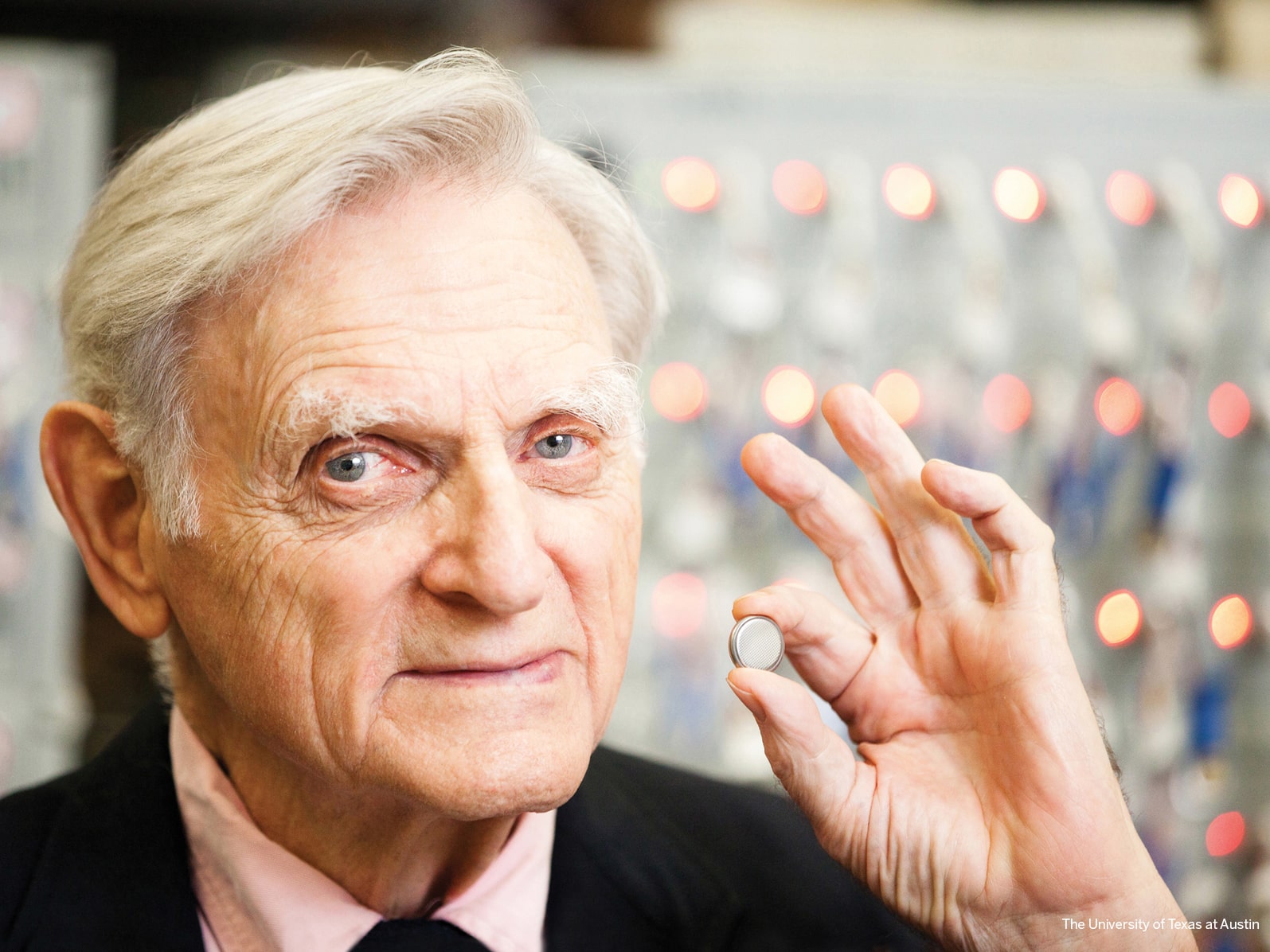
John B. Goodenough, professor in the Cockrell School of Engineering at The University of Texas at Austin, has been awarded the 2019 Nobel Prize in chemistry — jointly with Stanley Whittingham of the State University of New York at Binghamton and Akira Yoshino of Meijo University — “for the development of lithium-ion batteries.”
-
Electric Car Research Boosted by Cobalt-Free Battery

The elimination of cobalt — an expensive chemical component currently required to power our smartphones and laptops — from lithium-ion batteries has been the goal of Texas Engineer Arumugam Manthiram for much of his career.
-
Lithium-Ion Battery Inventor Wins World’s Oldest Scientific Prize
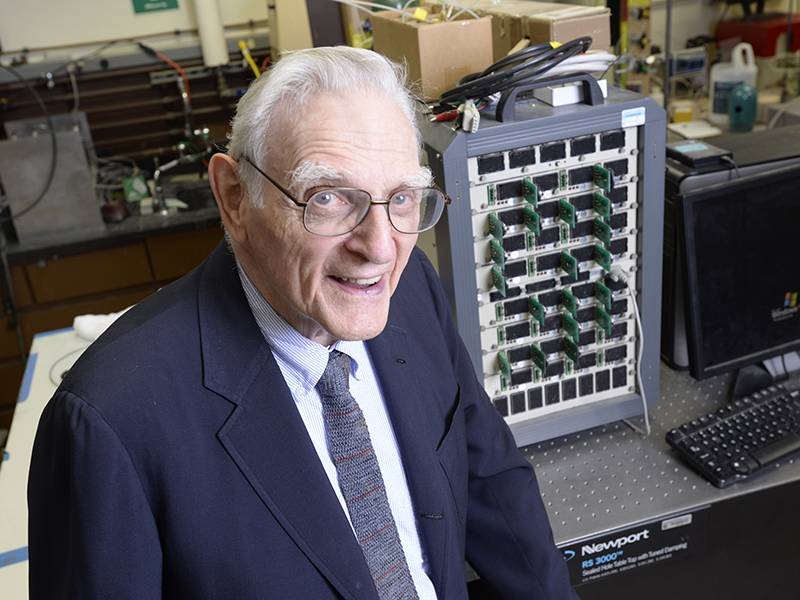
John Goodenough, a University of Texas at Austin professor in the J. Mike Walker Department of Mechanical Engineering in the Cockrell School of Engineering, has won U.K. Royal Society's Copley Medal, thought to be the world’s oldest scientific prize. Already a fellow of the Royal Society, Goodenough has been honored for his exceptional contributions to materials science, including his discoveries that led to the invention of the rechargeable lithium battery used in devices such as laptops and smartphones worldwide.
-
Texas Engineers Develop New Material for Better Lithium-ion Batteries
Researchers in the Cockrell School of Engineering at The University of Texas at Austin have discovered a family of anode materials that can double the charge capacity of lithium-ion battery anodes — a breakthrough that opens the door to cheaper, smaller and lighter batteries in the future.
-
John Goodenough Receives Prestigious Welch Award in Chemistry
The Welch Foundation has announced that Cockrell School of Engineering professor and legendary inventor of the lithium-ion battery John B. Goodenough is the 2017 recipient of the Robert A. Welch Award in Chemistry. Goodenough first received wide acclaim for his research following the invention of the lithium-ion battery in 1980, leading the way for the extraordinary growth in portable electronic devices that continues today. More than 30 years later, Goodenough, who is 95 years old, continues to contribute groundbreaking research.
-
Lithium-Ion Battery Inventor Introduces Fast-Charging, Noncombustible Batteries
A team of engineers led by 94-year-old John Goodenough, professor in the Cockrell School of Engineering at The University of Texas at Austin and co-inventor of the lithium-ion battery, has developed the first all-solid-state battery cells that could lead to safer, faster-charging, longer-lasting rechargeable batteries for handheld mobile devices, electric cars and stationary energy storage.
-
Battery Research Consortium Chosen by DOE to Advance Electric Cars
The Department of Energy has selected Battery500, a national consortium led by Pacific Northwest National Laboratory (PNNL) and including Arumugam Manthiram of The University of Texas at Austin as its chief scientist, to help lead a new five-year, $50 million initiative to advance battery technology in electric cars.
-
Adam Heller Named Honorary Member of Electrochemical Society
Adam Heller, chemical engineering research professor and professor emeritus in the Cockrell School, has been named the 78th Honorary Member of the Electrochemical Society (ECS). This prestigious recognition is only bestowed upon long-standing ECS members who have made exceptional contributions to the advancement of electrochemistry and allied disciplines.
-
Goodenough Shares $1 Million Global Prize for Innovation
Israel’s Prime Minister Benjamin Netanyahu and Israel’s Science, Technology and Space Minister Yaakov Peri have selected John B. Goodenough, professor at The University of Texas at Austin and inventor of the lithium-ion battery, to share The Eric and Sheila Samson Prime Minister’s Prize for Innovation in Alternative Fuels for Transportation.
-
New Cathode Material Creates Possibilities for Sodium-Ion Batteries
Led by the inventor of the lithium-ion battery, a team of researchers in the Cockrell School of Engineering at The University of Texas at Austin has identified a new safe and sustainable cathode material for low-cost sodium-ion batteries.







